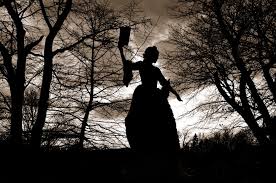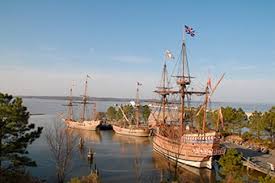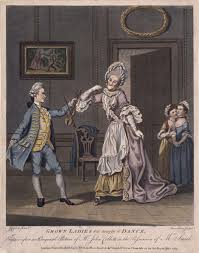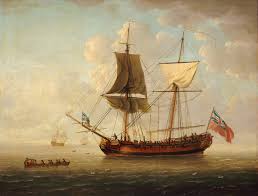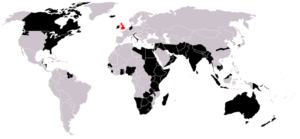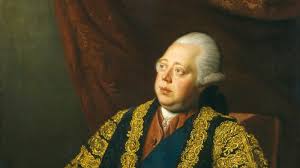Americanism Redux
January 30, Your Today, 250 Years Ago, In 1775
Anything you’ve heard? Anything at all?
The latest scrap, the most recent piece, any important new thing that shows what’s going to happen.
That’s what people want, today, January 30.
250 years ago.
* * * * * * *
(She’s asking a friend)
A woman reaches out to a man, friend to friend. She’s looking for advice, for some guidance.
Can I be aggressive in publicly ridiculing someone who I believe wants to hurt our community?
Can a Christian do that?
Can a woman act that way and not worry about being judged unfairly?
“How much longer, sir, do you think the political scale Can Hang in Equilibrium”?
From what she can tell, pretty much everything depends on the next “Congress” and whether its delegates choose to repair the “Constitution” or start over with a new one.
This is the letter Mercy Otis Warren writes today to John Adams in the embattled colony of Massachusetts. She waits for his reply.
* * * * * * *
(from his pen to the outside world)
A man in the colony of New Jersey puts out the call:
We need our own “Association”.
He’s making a public announcement for the people of New Jersey who believe the protest movement has gone too far. He wants to organize a counter-assembly, a counter-Association to produce a single, powerful voice in support of England, British policy, and the British Empire. He urges people in the colony to come together now before it’s too late.
Give us a “Loyalist Association”!
Rivington’s New York Gazette-er prints the call.
* * * * * * *
(Nottingham today)
John Quickfall is sympathetic to the call. He and twenty other Quakers in Burlington Township of Nottingham Township in New Jersey’s Burlington County meet today and draft the Nottingham Petition. They’re rejecting armed violence in protesting British policy. Quickfall and his companions want, above all, to avoid “the horrors of a civil war” that seems to be coming closer every day.
A question left unanswered is this: will Quickfall and people like him collaborate with a proposed “Loyalist Association”?
* * * * * * *
(near Norfolk and Hunter’s remarks)
The people of Norfolk, colony of Virginia are still absorbing the words of Captain John Hunter. Hunter’s ship has been in the town’s harbor for the past two days after a seven-week voyage from England. The townspeople were eager to hear the latest reports from London, the latest news from there on the imperial-colonial crisis.
With a crowd hanging on his every word, Hunter states two points. First, he says, the overall view in London is that Parliament will settle the troublesome issues when it convenes. Second, nothing is really certain until the “General Congress” meets next in Philadelphia.
That’s the latest from London, courtesy of your evening podcaster, broadcaster, and newscaster host, the ship Captain John Hunter.
Do you feel better about things now?
* * * * * * *
(no more of this until further notice)
Robert Hogg belongs to the “Committee of Safety” in Wilmington, colony of North Carolina. Hogg and a half-dozen others on the “COS” essentially are the enforcement group of whatever actions pro-colonial rights supporters and protesters want to take in Wilmington. Hogg and his colleagues will discuss and decide on what to do.
Today, 250 years ago, Hogg and the COS are settling in after their latest decision. They’ve decided to ban balls and dance parties until further notice.
You can still sing. You can still play a musical instrument. You can still hum loudly. You can even sway and dance so long as it’s a private activity. You just can’t move in pairs to the rhythm of sounds at an organized event.
The Wilmington Committee of Safety thanks you for your cooperation.
* * * * * * *
A score of other meetings occur from New Hampshire to Georgia. Based in townships, counties, and colony-wide assemblies, they endorse the work of the “Congress” last fall and anticipate the meeting of the next version this spring in Philadelphia. They describe efforts to enforce the multi-colony economic boycott. They assert representation of majority opinion. They announce their expressions as the community’s voice.
These are created events. Organized, planned, performed, conducted. Organic? Encompassing? Reflective of the nature of things? That’s your call.
* * * * * * *
In trying to decide, you keep searching for the latest word of the next clear moment.
Also
(James Boswell)
While traveling together in Edinburgh, Scotland, James Boswell asks a question of Samuel Johnson, the man about whom he is writing a book. Boswell admits “I am ashamed to say I have read little and thought little on the subject of America.”
What do you recommend I read about it?, Boswell says to Johnson.
I want to know more, I want to understand more, I will depend on your excellent knowledge of public affairs to help select the items I should read in order to gain more insight into British-American issues.
Boswell ends his string of requests and waits for Johnson’s reply.
* * * * * * *
(six of these)
British Admiral Charles Saunders approves of the decision made a few days ago by the Board of Admiralty. He’s on the Board.
Collectively, they decided, endorsed, and approved of the sending of six sloops of the British Navy to America. Aboard will be three Redcoat infantry regiments, one Redcoat dragoon regiment, and two British marine regiments.
They will be under the command of British General and Massachusetts Governor, Thomas Gage.
On the sloops, the Union Jack flags will stretch out straight in the salt wind.
* * * * * * *
(the General)
British General Jeffery Amherst, respected commander from the French and Indian War and King George III’s hope in playing a key role in putting down colonial insurrectionists, is tending to the concerns of Redcoat officers on the island of Guernsey in the English Channel. These officers are in charge of Redcoat units stationed on Guernsey.
Amherst wants to be sure they don’t get ignored in the midst of all the upheaval over the imperial-colonial crisis. He’d much rather focus on this problem than have to concoct new ways of saying no to the king.
* * * * * * *
(what Baillie fears will be lost)
Hugh Baillie is a former British officer and naval adventurer. He keeps close track of British defense and national security issues. Baillie knows that Josiah Quincy is staying in London and trying to do everything he can as a colonial leader in holding the British Empire together while still acknowledging the changing status of the British colonies in America.
Baillie tells Quincy his views as they stand now. Look to ancient Rome and Greece, he states. They show you the threats that endanger freedom and the wicked role that corruptions plays in the process. Happening again right now, according to Baillie. Also, if you had no other knowledge, you’d think that the current set of controversial laws—the Coercive Acts—had been purposely designed by England’s greatest enemy, France. Finally, Baillie declares openly that if the British colonies in America are lost, the British Empire itself may be next to vanish.
Trying times these are indeed, in the opinion of Hugh Baillie.
* * * * * * *
(the man vilified in this media outlet)
The most important leader in Parliament is Lord North, prime minister of King George III. Here’s the depiction of Lord North in today’s edition of “The Crisis”, a new weekly publication in London.
North is “…engendered in the womb of Hell, raised by the fostering hands of infernal Spirits, and possessing Principles that have eclipsed all the Glories of his Satanic Parents…”
Not hard to guess where these guys stand on colonial rights.
Not hard to measure how much common ground there is for a mutually acceptable resolution to the imperial-colonial crisis.
* * * * * * *
It’s the latest scrap and piece and important new thing in the storm spanning the Atlantic Ocean.
For You Now
Are you okay with deciding where things are headed now, for the near-term future? Do you have what you want in order to make that call? Is there a specific item that fixed your conclusion? I’m asking in the context of today, 2025.
Now let’s make a point from 250 years ago, for today.
About all that most people then have in their heads pertains to two political bodies, the Parliament in London that is convening and the Congress in Philadelphia that will convene in the spring. Most folks are anticipating what these bodies will or won’t do, can and can’t do, should and should not do, ought and ought not do. Folks wait for word from these two political bodies, one longstanding and the other upstart. In the meanwhile, as we see in today’s entry, they’re filling the time with created events (bunches of local meetings), gossip and speculation and requests for advice (the letter between friends), and weird actions (the ban on dance parties).
They have no idea that 1) last week the House of Lords rejected by a vote of 77 to 14 a proposal to withdraw British Redcoats from Boston; and 2) this week the British Admiralty has ordered six sloops of military personnel to sail for Boston to bolster Gage’s armed power. They won’t know these two things until four to eight WEEKS in the future, and likely longer as the news spreads from ports to towns, villages, and farms.
But for us in 2025, we would know those things within seconds and minutes. Within four to eight HOURS there would be rampant reactions, conjecture, rumors, outcries, pushback, and much more. There would be interviews, tweets, internet posts, jokes, memes, fake images, real images, and again, much, much more.
I’d like you to take a couple of minutes and ponder the difference between their four to eight weeks and our four to eight hours.
Suggestion
Take a moment to consider: what’s the most important thing for you to remember in a world where communication has shrunk from a wooden ship to a microchip?

